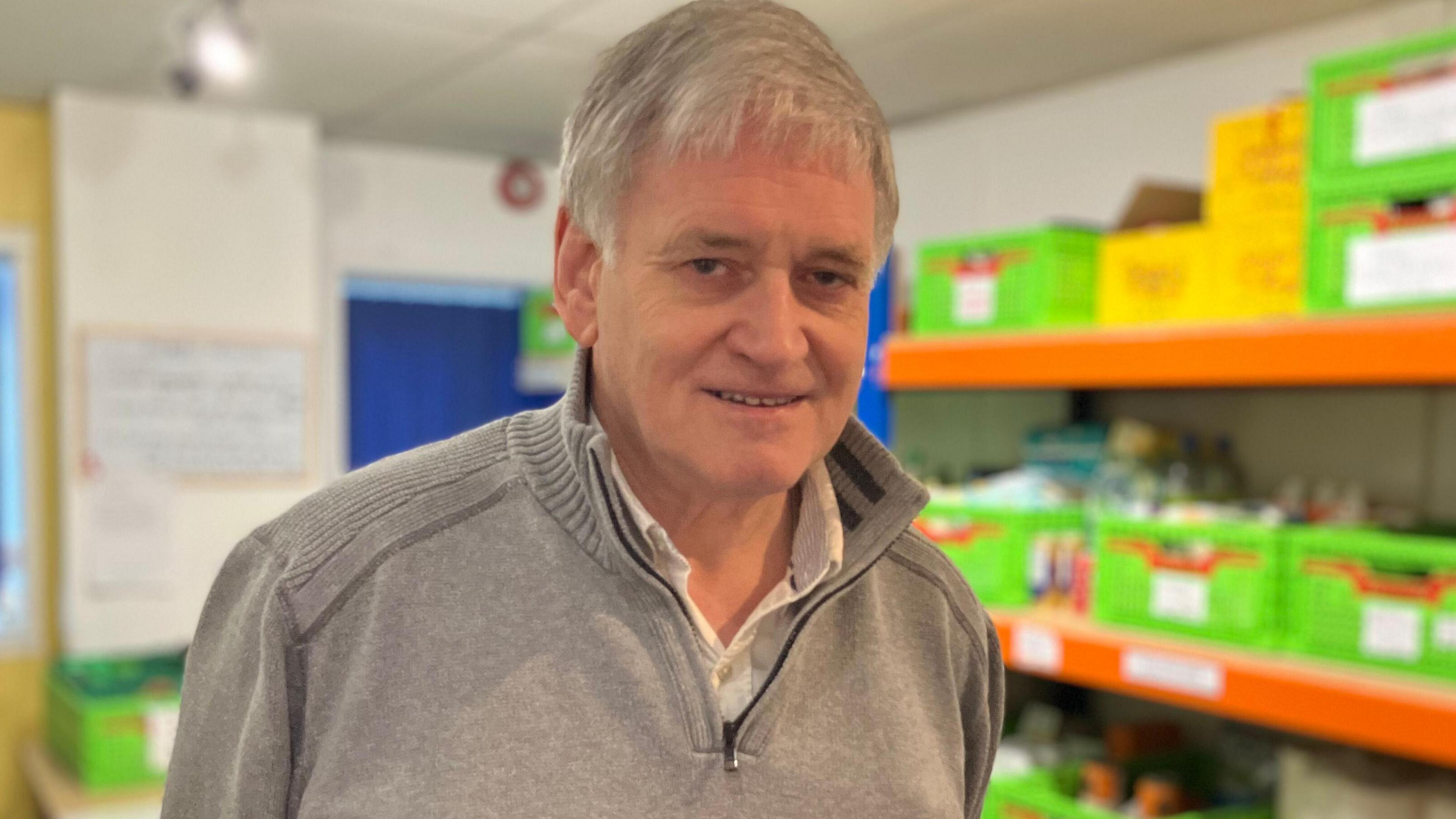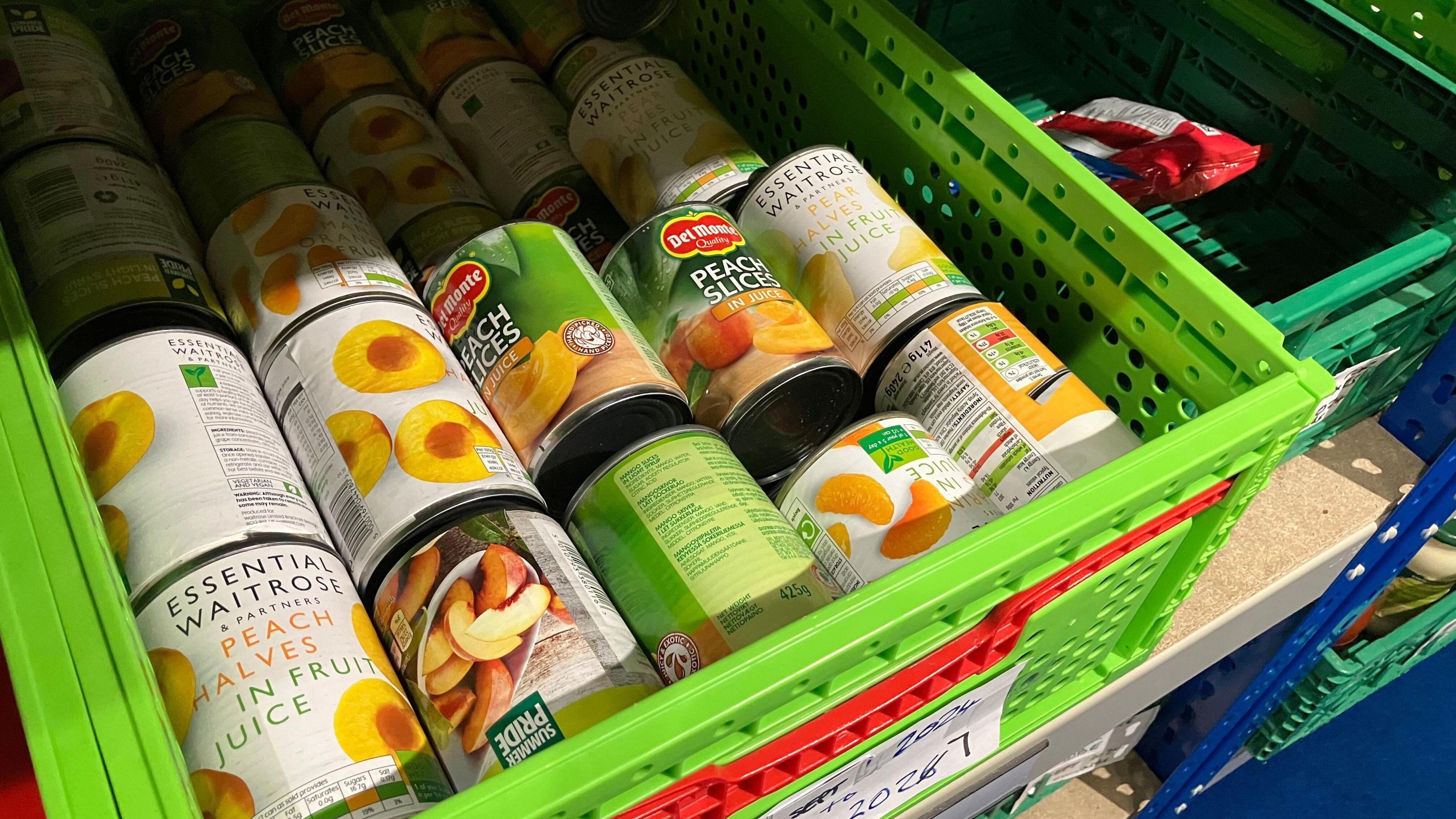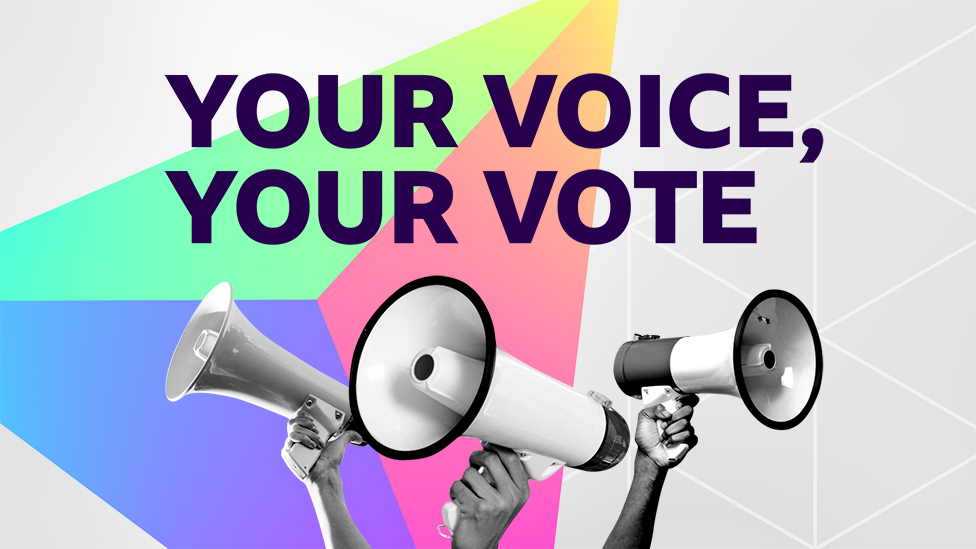Food banks at 'breaking point' ahead of election

Phil Stratton said food banks were being “stretched to breaking point”
- Published
Thame’s food bank is seeing a huge rise in demand, despite being in one of the statistically least deprived parts of the UK.
The charity Sharing Life Trust distributed 1,884 food parcels in the past year, which it says represents a 75% increase on pre-Covid levels.
Census data from 2021, external puts the South Oxfordshire district, where Thame is, into the lowest category for deprivation.
Sharing Life chairman Phil Stratton has written to general election candidates standing in the Henley and Thame constituency.
He told them the social security system was “not providing adequate protection” for people and that food banks were being “stretched to breaking point”.
He said: “There’s this underbelly of people really struggling, that people aren’t aware of. Some actually ring up in tears saying they haven’t eaten for days, which is astounding in Oxfordshire.
“The system is broken. The fact that we even have to run food banks in the UK is an indictment on our society.”
As part of Your Voice Your Vote, BBC Oxford has asked candidates in the Henley and Thame constituency what their parties would do to ease the cost of living.
Conservative candidate Caroline Newton said her party wanted to continue to encourage people to get back into work and make work pay.
She said: “We’ve raised the minimum wage and reduced tax for people of average and low pay and will continue to do that.
“We’ve announced we’ll end National Insurance contributions for the self-employed. We’ve said we have a long-term aspiration to end National Insurance contributions completely.”

All of the candidates standing in the Henley constituency were asked for their views
Liberal Democrat candidate Freddie van Mierlo said his party would use a windfall tax on oil and gas companies to pay for home improvements that reduce energy bills.
He said: “That would include things like proper investment in heat pumps so that families can have more cost-effective heating at home.”
Nanda Manley-Browne, who is standing for Labour, said she wanted to see more support for working people.
She said: “We’ll boost wages, make work more secure and support working people to thrive; delivering a genuine living wage, banning exploitative zero-hour contracts and ending ‘fire and rehire’.”
Jo Robb, for the Greens, said her party had pledged a number of other immediate measures.
She added: “We Greens would increase Universal Credit by £40 a week. We would abolish the two-child benefit cap, which would instantly lift a quarter of a million children out of poverty. And we would end the ‘bedroom tax'.”
Independent candidate David Carpin said he would do things like rejecting net zero, which he claimed would save £30bn a year - and "ensure cheaper energy" by removing VAT and renewable energy levies from bills.
Maryse Pomlett is standing for the Social Democratic Party, which said it would target further increases in the National living Wage.
We also contacted Peter Shields, the candidate for Reform UK, but did not receive a response. However his party has pledged to lift the income tax starting threshold to £20,000.

What really matters to you in this general election? What is the one issue that will influence your vote? Click the button below to submit your idea, and it could be featured on the BBC.
